|
Books Should Be Free Loyal Books Free Public Domain Audiobooks & eBook Downloads |
|
|
Books Should Be Free Loyal Books Free Public Domain Audiobooks & eBook Downloads |
|
Fiction |
|---|
|
Book type:
Sort by:
View by:
|
By: Christopher Morley (1890-1957) | |
|---|---|
 In the Sweet Dry and Dry
In the Sweet Dry and Dry
Written just before Prohibition to entail the possible troubles that might happen en route. Both sides of the argument, or battle as the case may be, strike out with various over-top methods like legislating most fruits and vegetables as unsafe or intoxicating large groups with breathable alcohol. | |
By: Barbara Hofland (1770-1844) | |
|---|---|
 The Barbadoes Girl
The Barbadoes Girl
Matilda Sophia Hanson, whose father has recently died in their country of Barbadoes in the West Indies, must live for a time with family friends in England. The Harewood family is astonished at how spoiled, rude, and uneducated the child is. However, with seemingly endless patience and love, they help Matilda work to conquer her bad temper, and become a sensible, good, and well-informed young lady. This story reminds children and adults alike, though you have many battles with yourself, you must never relinquish hope and be assured you will find every victory easier than the last... | |
By: Rosa Campbell Praed (1852-1935) | |
|---|---|
 Lady Bridget in the Never-Never Land
Lady Bridget in the Never-Never Land
Following a failed love affair in England, Lady Bridget O'Hara accepts an invitation to travel to colonial Australia as companion to Lady Rosamund Tallant, the wife of the newly-appointed governor of Leichardt's Land. In Leichardt's Town, Lady Bridget, also known as Biddy, is reunited with her old friend and collaborator, Joan Gildea, special correspondent for The Imperialist newspaper. While visiting Joan, Biddy meets Colin McKeith, a roughly-hewn, Scottish-born pioneer, drover, miner, sometime-politician, and magistrate in the north-eastern colony... | |
By: Fanny Coe [editor] (1866-1956) | |
|---|---|
![The Book of Stories for the Storyteller by Fanny Coe [editor]](/image/layout2/The-Book-of-Stories-for-the-Storyteller.jpg) The Book of Stories for the Storyteller
The Book of Stories for the Storyteller
This is a delightful collection of 43 fairy tales (both old and new), folk lore, myths and real life stories by a variety of authors, brought together by writer Fanny E Coe. They are mostly short and are fun to listen to by children and adults and most teach valuable lessons about life. Some of the stories are: A Legend of the North Wind; How the Robin's Breast became Red; The Little Rabbits; St Christopher; The Necklace of Truth; A Night with Santa Claus; The Wolf-Mother of Saint Ailbe; Pocahontas and How Molly spent her Sixpence | |
By: Ethel Twycross Foster (1881-1963) | |
|---|---|
 Little Tales of the Desert
Little Tales of the Desert
A six year-old girl named Mary spends Christmas vacation with her parents in the Arizona desert of 1901 or thereabouts. | |
By: E.W. Howe (1853-1937) | |
|---|---|
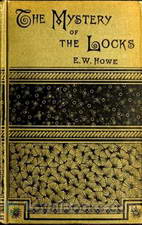 The Mystery of the Locks
The Mystery of the Locks
Davy's Bend was a dying, lonely, uncared for river town. So when a stranger showed up one day and bought the old unoccupied house called 'The Locks' one dreary day, the inhabitants of the town were naturally very curious about the stranger, and very curious about his reasons for buying the old house. The Locks had been known for years to display at nighttime a single light showing up in one room, and there was one room in the house which was strictly off-limits to anyone. What was the history behind... | |
By: Sarah J Richardson (1835-????) | |
|---|---|
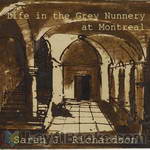 Life in the Grey Nunnery at Montreal
Life in the Grey Nunnery at Montreal
Life in the Grey Nunnery was first published in Boston, in 1857 by Edward P. Hood, who was credited as the book's editor. It is likely that this account is by Sarah J. Richardson "as told to" Edward Hood, though it may in fact be completely fictional. It is clearly an anti-Catholic book, an example of the genre of fiction referred to as "the convent horror story."As this summary shows, it is not known if this book is fictional or a true account.(Summary by project Gutenberg and Elaine Webb) | |
By: David Whitelaw | |
|---|---|
 The Princess Galva
The Princess Galva
Edward Povey had been a correspondence clerk for twenty-two years when he was summarily dismissed. So how did he find himself mixed up with an orphan girl, who was really a princess, as she sought to reclaim her throne from the man who had killed her parents? Well, however it had happened, it was romantic. And after two decades in the basement office of a shipping company, he was ready for a bit of romance. (Introduction by MaryAnn) | |
By: H.H. Bashford (1880-1961) | |
|---|---|
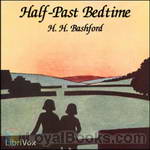 Half-Past Bedtime
Half-Past Bedtime
Ah, the wonderful adventures of Marian after she meets the strange Mr. Jugg. "And who are you, Mr Jugg?" she inquired. "I'm the King of the Bumpies," he replied. When Marian was puzzled there came a little straight line, exactly in the middle, between her two eyebrows. "What are bumpies?" she said. "My hat!" he gasped. "Haven't you ever heard of bumpies?" Marian shook her head. "Oh dear, oh dear!" he sighed. "Have you ever heard of angels?" "Well, of course," said Marian. "Everybody's heard of angels... | |
By: Jane Barlow (1857-1917) | |
|---|---|
 Strangers at Lisconnel
Strangers at Lisconnel
Strangers at Lisconnel is a sequel to Jane Barlow’s Irish Idylls. The locations and most of the characters are common to both. There is great humor and concomitantly a certain melancholy in most of these stories of the most rural of rural places in Ireland. Although of a higher social class than her characters, Our Jane seems to have a touch of softness in her heart for their utter simplicity, abject poverty and naiveté. From the following brief example of dialogue, can be seen that Ms Barlow could only have come to write these words after having heard them countless times in person: Mrs... | |
By: Lucy S. Furman (1869-1958) | |
|---|---|
 Mothering on Perilous
Mothering on Perilous
Cecelia Loring is alone in the world after the death of her mother and has come to the Kentucky mountains in search of work. Although very depressed from her loss she soon becomes caretaker of the garden at a school and not many days later finds herself quite busy as housemother to a group of energetic boys that keep running away from the school because of homesickness, especially Nucky, who seems to have the weight of the world on his shoulders, worrying about not being at home to help his brother Blant "keep lookout" for the Cheevers, who have been at war with the Marrses for years over a piece of land... | |
By: Morgan Scott | |
|---|---|
 Rival Pitchers of Oakdale
Rival Pitchers of Oakdale
Play Ball!!! It's the start of another baseball season at Oakdale Academy. But there is a rivalry brewing between the pitchers. One wants to be a starting pitcher, but he is inconsistent. Another, a new kid from Texas, has been mentored by last year's starter, and is proving to have talent. And don't forget that starting pitcher from last season, he wants to continue to take the rubber for the team. This should prove to be an exciting season for the boys! | |
By: Ellen Robena Field | |
|---|---|
 Buttercup Gold And Other Stories
Buttercup Gold And Other Stories
A charming collection of short stories and verses for young children. First published by the Bangor, Maine Kindergarten Association. | |
By: Austin Bishop | |
|---|---|
 Tom of the Raiders
Tom of the Raiders
Young Adult historical fiction of a young man joining the Union Army and taking part in the Great Locomotive Chase. | |
By: Kenneth McGaffrey (??-1938) | |
|---|---|
 The Sorrows of a Show Girl
The Sorrows of a Show Girl
Originally printed in The Morning Telegraph in New York, this is the story of Miss Sabrina, the show girl, and her ups and downs with the unpredictable theatrical industry and the Great White Way, the lights and glamour of Broadway. "In order to set myself right with both the public and the vast army of Sabrinas that add youth and beauty to our stage, and brilliancy and gaiety to our well known cafes, I wish to say that she is all that she should be...”- Kenneth McGaffrey | |
By: Sarah Stuart Robbins (1817-1910) | |
|---|---|
 Miss Ashton's New Pupil
Miss Ashton's New Pupil
Marion Park, the daughter of missionaries, is sent to Miss Ashton's boarding school. There she meets with many young girls and together they learn not just lessons in German, Logic, Arithmetic, Latin and Rhetoric, but also life lessons of study habits, lady like manners, self control, thoughtfulness of others, truthfulness, and many other character traits. Join these girls of Montrose Academy as they plunge into the adventures of a secret society, fall into a scrape with the boys of Atherton Academy, and plan many Holiday festivities. | |
By: Samuel Merwin and Henry Kitchell Webster (1874-1936 and 1875-1932) | |
|---|---|
 The Short Line War
The Short Line War
"The Short Line War is a story that will appeal more particularly to the sterner sex, and we take it that the hyphenated name, Merwin-Webster, stands for two healthy-minded young men who have put their heads together and who have mapped out this story of a railroad war, in which politics form a considerable part. Jim Weeks is the central figure in the fight, and we like him so much better for knowing of the romance in his early life. He was a man 'without much instinct or imagination; he took everything seriously and literally, he could not understand a whim'--therefore a very foolish little woman came into his life only to leave it desolate... | |
By: John Bell Bouton | |
|---|---|
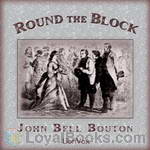 Round the Block
Round the Block
In Round the Block (1864), John Bell Bouton, a newspaper editor who later became a travel writer, stirs together comedy and pathos to explore the schemes and dreams of the average and extraordinary people inhabiting and intermingling on a single New York City block. In the path of the novel's circumambulation lie mystery, romance, and a murder trial, as love-matches and fortunes are made and lost through invention, speculation, and flimflam - plenty of flimflam. This richly-charactered novel, told with Dickensian brio, offers a fascinating slice of life, vivid in detail, of the bustling big-city habits and mores of America shortly before the Civil War. (Introduction by Grant Hurlock) | |
By: Alfred Lawson (1869-1954) | |
|---|---|
 Born Again
Born Again
"I doubt that anyone who reads [Born Again] will ever forget it: it is quite singularly bad, with long undigestible rants against the evils of the world, an impossibly idealistic Utopian prescription for the said evils, and - as you will have gathered - a very silly plot." - oddbooks.co.ukAlfred Lawson was a veritable Renaissance man: a professional baseball player, a luminary in the field of aviation, an outspoken advocate of vegetarianism and economic reform, and the founder of a pseudo-scientific crackpot philosophy called Lawsonomy... | |
By: Unknown | |
|---|---|
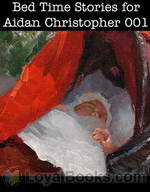 Bed Time Stories for Aidan Christopher
Bed Time Stories for Aidan Christopher
Bed Time Stories is a collection of 14 short stories especially for young children. | |
By: Various | |
|---|---|
 Historical Newspaper Articles
Historical Newspaper Articles
Public Domain newspaper articles in the US span a period of nearly two and a half centuries. Subjects, styles, period, publisher, and length vary greatly. This collection is a sampling of twenty such articles including one from the Journal de Paris. | |
 Love Letter Collection
Love Letter Collection
By conservative estimates, more than 6.8 million out of earth's population of 7 billion have access to cell phones. This has happened in just over 20 years. It's safe to assume that almost all these people would prefer to communicate via their phones rather than by snail-mail, post or courier. Which leads us to the question: “Does this mean the death of the love letter?” For those of us who still remember the joys of receiving and sending romantic epistles, couched in purple prose, expressing our deepest feelings, these little messages were the most delightful way of keeping in touch with those we loved... | |
 Favorite Chapters Collection
Favorite Chapters Collection
All of us have our own favorite parts of a book which we love to read and re-read. The nicest part of this is that each time you read, you find something new to savor and remember. For those of us who haven't read some of the classics, a teaser in the form of a single chapter would probably be intriguing enough to want us to take up the book and start reading. Favorite Chapters Collection 001 is one such delicious tasting table! Ten chapters from some of the best known classics in English are available here and they're sure to delight not only those who have read the entire book but also those who are yet to do so... | |
By: Unknown | |
|---|---|
 African-American Collection, July 2007
African-American Collection, July 2007
This collection recognizes Black History Month, February 2007. Two excellent resources for public domain African American writing are African American Writers (Bookshelf) and The Book of American Negro Poetry, edited by James Weldon Johnson. Johnson’s collection inspired the Harlem Renaissance generation to establish a firm African-American literary tradition in the United States. | |
By: Anonymous | |
|---|---|
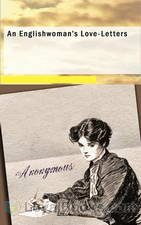 An Englishwoman's Love-Letters
An Englishwoman's Love-Letters
It need hardly be said that the woman by whom these letter were written had no thought that they would be read by anyone but the person to whom they were addressed. But a request, conveyed under circumstances which the writer herself would have regarded as all-commanding, urges that they should now be given to the world; and, so far as is possible with a due regard to the claims of privacy, what is here printed presents the letters as they were first written in their complete form and sequence. From book explaination | |
By: Joseph Hocking (1860-1937) | |
|---|---|
 Weapons of Mystery
Weapons of Mystery
Justin Blake receives an invitation from his old school-fellow Tom Temple to join him and his family for the Christmas holidays in Yorkshire. Having no other plans, he decides to go. Though he is normally much the opposite of what would be called a lady's man, he falls instantly in love with Miss Forrest, one of the guests, who had already shared his train compartment on the way. When he meets the mysterious Herod Voltaire and finds that he must protect the girl from him and his weapons of mystery, the adventure begins. | |
By: Unknown | |
|---|---|
 The Good Housekeeping Marriage Book
The Good Housekeeping Marriage Book
A collection of articles from Good Housekeeping magazine, The Good Housekeeping Marriage Book focuses on the subject of marriage. With instructions and advice from courtship to raising children, this collection aims to assist those with questions and concerns surrounding marriage and the ensuing relationship. Published in 1938. | |
By: Various | |
|---|---|
 U.S. Historical Documents
U.S. Historical Documents
The Articles of Confederation: On November 15th, 1777 The Articles of Confederation became the first constitution of the United States, though not yet ratified by the thirteen original colonies. Ratification of the Articles took place almost three and a half years later on March 1st, 1781. The purpose of the articles was to create a confederation of sovereign states with a weak central government; thus allowing state governments to wield most of the power. It wasn’t long before the need for a stronger federal government was realized which led to the Articles being replaced by the United States Constitution... | |
By: Edward Phillips Oppenheim (1866-1946) | |
|---|---|
 The Cinema Murder
The Cinema Murder
Phillip Romilly is a poor art teacher in London. He finds out that his wealthy cousin Douglas has been seeing his girl friend Beatrice behind his back. He strangles Douglas, throws him in the canal, and assumes his identity. Douglas had booked passage to America for the next day, so after a pleasant sea voyage Phillip arrives at the Waldorf Hotel in New York as Douglas Romilly. An hour after checking in he disappears again, and assumes yet another identity, one that his cousin had set up for himself. Douglas was facing massive financial problems, and he, too, had planned to avoid his problems by getting lost in the crowd in New York. Now, in chapter two…. | |
By: Unknown | |
|---|---|
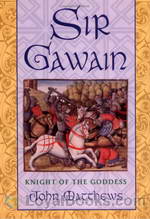 Sir Gawain and the Green Knight
Sir Gawain and the Green Knight
Sir Gawain and the Green Knight is a late 14th Century Middle English alliterative romance outlining an adventure of Sir Gawain, a knight of King Arthur’s Round Table. In the tale, Sir Gawain accepts a challenge from a mysterious warrior who is completely green, from his clothes and hair to his beard and skin. The “Green Knight” offers to allow anyone to strike him with his axe if the challenger will take a return blow in a year and a day. Gawain accepts, and beheads him in one blow, only to have the Green Knight stand up, pick up his head, and remind Gawain to meet him at the appointed time... | |
By: Anonymous | |
|---|---|
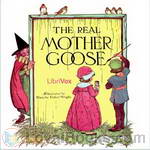 The Real Mother Goose
The Real Mother Goose
A heartwarming collection of nursery rhymes that will take you back to your childhood! | |
By: Unknown (b. 1883) | |
|---|---|
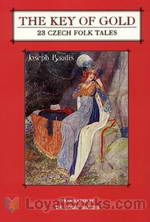 The Key of Gold: 23 Czech Folk Tales
The Key of Gold: 23 Czech Folk Tales
Not your common fairy tales, this collection is a mixture of morals, quirkiness, and sarcasm. In it one finds ironic derivatives (if not roots) of well known fairy tales such as “The Brave Little Taylor” and “Beauty and the Beast,” as well as some more unusual settings to impart the popular fairy tale themes of justice and happily ever after. Most stories are told with wry humor and often shocking irreverence for the expected fairy tale turn out. This is NOT a book for children, but one for adults who love fairy tales, and enjoy making fun of them... | |
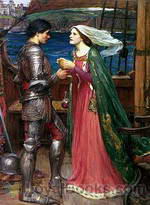 An Arthurian Miscellany
An Arthurian Miscellany
A collection of works that explore the rich and evocative legend of King Arthur. The exploits of Arthur and his Knights of the Round Table have been a staple of British literature through the centuries, drawing together themes of pagan wizardry, the search for the Holy Grail, chivalry and of course romance. | |
By: Various | |
|---|---|
 Local Color Collection
Local Color Collection
In this celebration of diversity, learn about the myriad histories and cultures behind our volunteers. | |
 Kayray's Storytime
Kayray's Storytime
A collection of my favorite short children's stories and rhymes. | |
 X Minus One Project
X Minus One Project
This is a collection of public domain science fiction stories which were turned into half-hour plays for the classic mid-1950's American radio series, X Minus One. All of these stories were added to Project Gutenberg via Greg Weeks and crew at Distributed Proofreaders. | |
By: Unknown | |
|---|---|
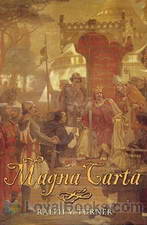 Magna Carta
Magna Carta
The original document is in Latin so this can only be a fairly rough approximation of the actual content. The text used is the first version in the Gutenberg collection. – Magna Carta is the most significant early influence on the long historical process that has led to the rule of constitutional law today. Magna Carta was originally created because of disagreements between the Pope, King John and his English barons over the rights of the King. Magna Carta required the king to renounce certain rights and respect certain legal procedures and to accept that the will of the king could be bound by law. | |
By: Various | |
|---|---|
 Best Russian Short Stories
Best Russian Short Stories
In this collection of Russian stories, editor and compiler Thomas Seltzer selects from a range of the best examples of 19th and early 20th century Russian literature. As a survey of famous authors at the height of the powers, as well as some writers who have been unjustly neglected, this anthology is indispensable. | |
By: Anonymous | |
|---|---|
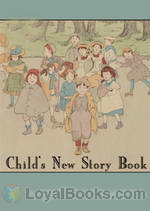 Child’s New Story Book
Child’s New Story Book
Short and sweet stories for children. | |
By: Various | |
|---|---|
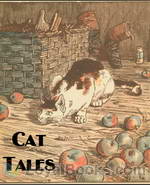 Cat Tales
Cat Tales
Cat Tales is the first of a series of kid-friendly collections of animal stories and non-fiction. There’ll be one or two grade-school-level texts on the animal, with eight-nine fiction works. Source for these is Project Gutenberg. | |
By: Unknown | |
|---|---|
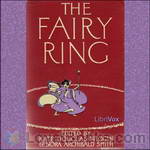 The Fairy Ring
The Fairy Ring
The Fairy Ring, originally published in 1910, is a collection of 63 fairy tales from around the globe. It includes such well-known favorites as “History of Jack the Giant-Killer,” “The Frog Prince,”"Rumpel-stilts-ken,” and “Snow-white and Rose-red,” among many others. Children of all ages will enjoy these stories. | |
By: Various | |
|---|---|
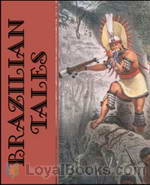 Brazilian Tales
Brazilian Tales
“Brazilian Tales” is a collection of six short stories selected by Isaac Goldberg as best representative of the Brazilian Literature of his period – the end of the 19th century. His comprehensive preface aims at familiarizing the reader with a literature that was – and still is – virtually unknown outside the boundaries of its own land, and the pieces chosen by Goldberg to be translated belong to writers that reached popularity and appreciation while still alive. This “pioneer volume”, as the translator himself puts it, still keeps its charm and interest as a way of offering to the English speaking public some “sample cases” of Brazilian Literature. | |
By: Unknown | |
|---|---|
 Grandma Janice's Poems and Stories
Grandma Janice's Poems and Stories
The poems and stories in this collection were selected with the reader’s grandchildren in mind. “The Raggedy Man” and “Little Orphant Annie,” both by James Whitcomb Riley, the Hoosier Poet were favorites of the reader when she was a child on a farm in Indiana. Other favorites were picked up along the way as she read to her own daughter and to her students, while other gems were discovered while looking for poems and stories to include in this collection. It is hoped that this collection will bless the hearts of many children and parents alike as they listen together. | |
 The String of Pearls
The String of Pearls
The tale of Sweeney Todd has had many incarnations, most famously the stage and movie musical by Stephen Sondheim. But it all started in 1846 with a serialized telling of the story titled “The String of Pearls” in the weekly magazine “The People’s Periodical and Family Library”. Called by some a romance, by others a horror story, it is one of the earliest murder mysteries. In “The String of Pearls”, Sweeney Todd is less sympathetic than in some of his later incarnations – a perfect villain, totally self-seeking with no redeeming qualities... | |
 James Joyce in Context: Telemachus
James Joyce in Context: Telemachus
Collection of various works which James Joyce quotes and references to in his epic novel Ulysses, and provides them in audio form. Perfect for Joyce scholars, fans, and aficionados! | |
 Young Adult Short Works Collection
Young Adult Short Works Collection
Young Adults Short Story Collection: a collection of 9 short works of Young Adult fiction in the public domain. | |
 Eighteenth Century Poetry and Prose Collection
Eighteenth Century Poetry and Prose Collection
A collection of 48 prose and poetry selections written principally in the 18th Century. These works of world literature are written in the English language or are in English translation. | |
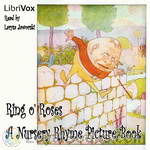 Ring o' Roses: A Nursery Rhyme Picture Book
Ring o' Roses: A Nursery Rhyme Picture Book
A collection of Classical children’s nursery rhymes. Many familiar, a few unfamiliar, all simple and easy for younger children. | |
 The House that Jack Built
The House that Jack Built
“The House that Jack Built” is a standard of juvenile literature that delights children and adults alike with the increasingly lengthy sentences, stretched to the breaking point, that make up its narrative. Through a chain of events, beginning with a rodent eating some grain and culminating in a festive wedding, children learn that playing with grammar can be fun! You can read along with this recording. | |
 Insomnia Collection
Insomnia Collection
Soporific dullness is in the ear of the listener, and what’s tedium incarnate to one person will be another person’s passion and delight. However, it is hoped that at least one from the range of topics here presented will lull the busy mind to a state of sweet sleep. Introduction by Cori Samuel. | |
By: Anonymous | |
|---|---|
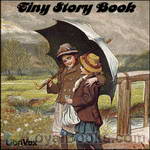 Tiny Story Book
Tiny Story Book
Short and sweet stories for children. | |
By: Various | |
|---|---|
 Library of the World's Best Literature, Ancient and Modern
Library of the World's Best Literature, Ancient and Modern
The Library of the World's Best Literature, Ancient and Modern, is a work of enormous proportions. Setting out with the simple goal of offering "American households a mass of good reading", the editors drew from literature of all times and all kinds what they considered the best pieces of human writing, and compiled an ambitious collection of 45 volumes (with a 46th being an index-guide). Besides the selection and translation of a huge number of poems, letters, short stories and sections of books, the collection offers, before each chapter, a short essay about the author or subject in question... | |
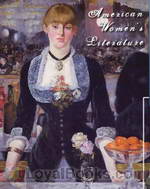 American Women's Literature, 1847 to 1922
American Women's Literature, 1847 to 1922
This is a collection of 20 short stories and long-form poetry by American women writers. | |
 Short Humor Collection
Short Humor Collection
This is a collection of short humorous works first published before 1923. | |
 Robert Burns 250th Anniversary Collection
Robert Burns 250th Anniversary Collection
Robert Burns, the national bard (poet) of Scotland was born on the 25th January, 1759. This is a collection of his poems and songs. This collection also includes works from other poets and writers who have written about Burns. | |
 The Rivals of Sherlock Holmes, Volume 1
The Rivals of Sherlock Holmes, Volume 1
The Rivals of Sherlock Holmes was a British TV series from the early 70s that dramatized stories written contemporaneously with the Sherlock Holmes stories of Sir Arthur Conan Doyle. This anthology contains twelve of the thirteen stories adapted as episodes for the first season. Sadly, one story, "The Missing Witness Sensation" by Ernest Bramah, is not public domain in the U.S., but can be read in the anthology Max Carrados Mysteries. | |
By: Anonymous | |
|---|---|
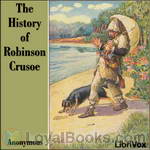 The History of Robinson Crusoe
The History of Robinson Crusoe
A 6-page digest of Defoe’s famous work for young readers. | |
By: Various | |
|---|---|
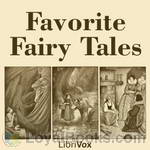 Favorite Fairy Tales
Favorite Fairy Tales
This book of favorite fairy tales was compiled and illustrated by Peter Newell. it includes Jack The Giant Killer; Cinderella; Sleeping Beauty; Little Red Riding Hood; Aladin and the Wonderful Lamp, The Ugly Duckling, Beauty and the Beast, Snow White and Rose Red, The Wild Swans, Ali Baba and the 40 Thieves, and 4 others that are not so famous. The stories included were based upon the those that various famous men remembered as their favorites when children | |
By: Unknown | |
|---|---|
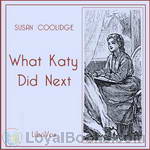 What Katy Did Next
What Katy Did Next
This is the third book of the famous “What Katy did” series. | |
By: Philip K. Dick (1928-1982) | |
|---|---|
 Mr. Spaceship
Mr. Spaceship
The war with the Yucks from Proxima Centauri was claimed to be a stalemate but they were really winning. The mine belts they laid seemed to propagate themselves and were slowly strangling Terran planets. How did they do that? What was their secret? The answer was baffling and the best human minds could only conclude that their ships and mines were somehow alive. So, the next desperate step was to ask "If they are using organic ships, why can't we do the same?". Thus Mr. Spaceship was conceived and carried out. But will a conscious warship do what the generals wish? Perhaps and perhaps something entirely surprising! | |